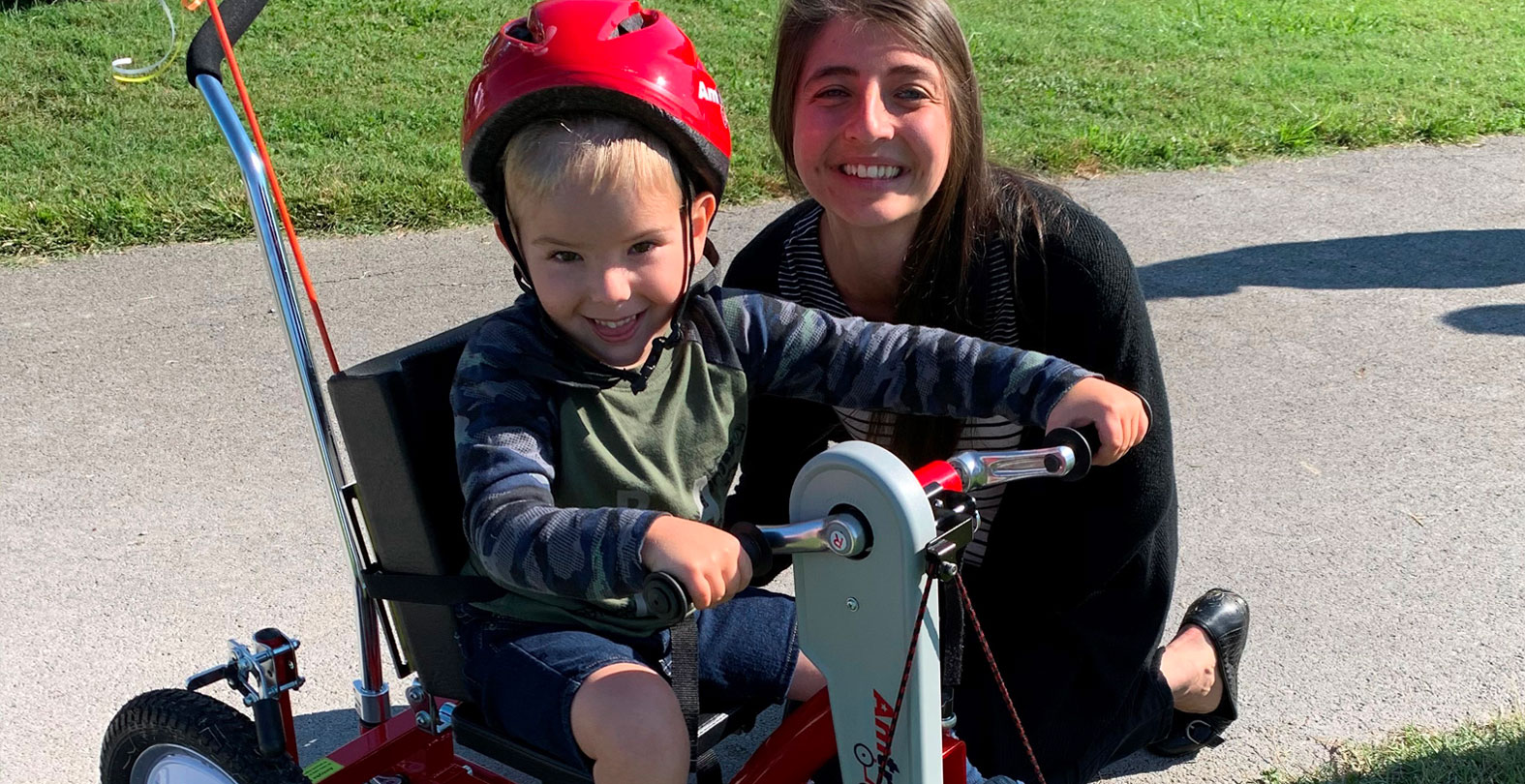After eight surgeries, Jaxton keeps smiling and passing milestones

The mood lightens as soon as Jaxton Williams enters Drayer Physical Therapy’s Strawberry Plains clinic in Knoxville, Tenn.
“He is just a ray of sunshine,” said physical therapist Hannah Wells, who has treated 5-year-old Jaxton for one year.
He’s a prankster, she said, known to place a two-inch plastic cockroach on an unsuspecting target’s shoe or head. Or he might try to get someone to sit on it.
“He just brings a lot of positivity and happiness to the clinic,” Hannah said.
That indomitable spirit belies the severe challenges that Jaxton has faced since being born with spina bifida and clubfoot. He was born with his legs straight up, such that the bottom of his feet could touch one another. “His praying feet,” his parents called them.
It has been a harrowing journey for Jaxton and his parents, Cassi and Dusty, who live in Sevierville, Tenn., near the Dollywood amusement park.
But with their religious faith, support from the Shriners organization and Drayer Physical Therapy, the Williams family is more optimistic than ever about Jaxton’s physical potential.
Whereas it was feared that he might be born paralyzed from the waist down, Jaxton can walk with the aid of a walker and continues to make progress in physical therapy. He likes to ride his bike, swim, fish, play T-ball.
Cassi recalled the sense of excitement she felt after their first meeting with Hannah in May 2020. She hadn’t anticipated that Hannah would set such “large goals for him.”
“Hannah definitely has been life-changing for Jaxton,” Cassi said.
Eight surgeries
Jaxton was born by a gestational carrier. A week-20 ultrasound revealed his spina bifida, in which the spinal cord fails to develop properly, and clubfoot, in which the foot is twisted out of position.
Jaxton underwent a spine closure operation as soon as he was born. In all, he has endured eight surgeries, mostly for revisions to a brain shunt that was inserted to treat swelling caused by excess spinal fluid. The most recent surgery, in October 2020, was for a total foot reconstruction.
Some of Jaxton’s obstacles were avoidable. Improperly fitted leg braces caused his leg bones to grow crookedly. The corrective “boots and bar” braces meant to hold Jaxton’s feet in proper position caused open sores on the back of his feet. The doctor and the brace manufacturer pointed fingers at each other.
Meanwhile, a friend suggested the family reach out to the Shriners fraternal organization.
Volunteers from the Great Smoky Mountain Shrine Club drove them to the Lexington hospital for Jaxton’s first appointment around Halloween 2016. Inexplicably, it was the first time anyone had taken X-rays of Jaxton’s feet. The images revealed the extent of the damage caused by the poorly fitting braces, but the doctor was confident that the bones could be straightened over time.
Jaxton spent the first three years of his life receiving physical therapy treatment at East Tennessee Children’s Hospital. Cassi said his progress stalled in the year between his discharge from the hospital’s PT program to beginning with Hannah, when Jaxton had intermittent in-home therapy and therapy at school.
